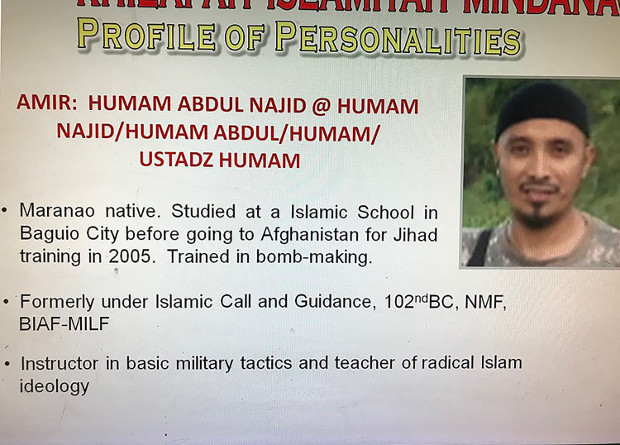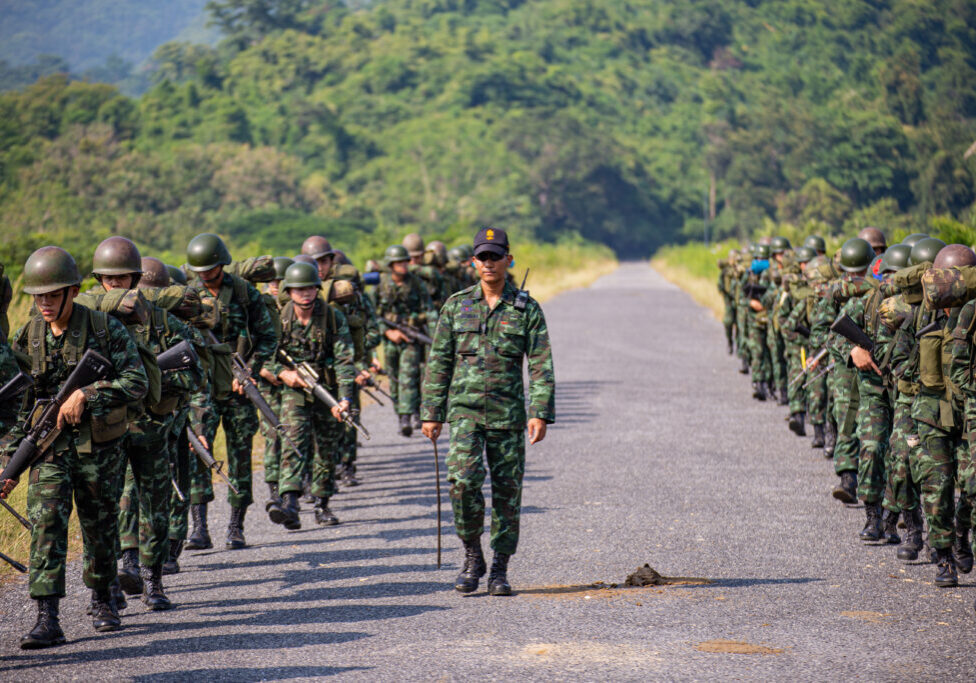Australia/Israel Review
Asia Watch: New beginnings, familiar threats
Apr 1, 2019 | Michael Shannon

Despite the inauguration of a newly reformed autonomous Muslim region in the southern Philippines in late February, few were under any illusion that an era of peace and prosperity had suddenly swept in. Holdout militant factions are still a significant destabilising threat in an area plagued by generations of neglect and violent unrest.
Fighting between government forces and two militant factions in separate parts of Mindanao erupted on March 11, with Government security forces launching an air and artillery assault against Bangsamoro Islamic Freedom Fighters (BIFF) positions near a militant stronghold in the town of Datu Salibo in Maguindanao province. Elsewhere in the south, further clashes between troops and militants occurred near the ruined city of Marawi. At least 22 militants have been killed so far, along with three soldiers.
The target of the military offensive was Abu Turaife, the leader of a BIFF faction aligned with Islamic State. BIFF broke away in 2008 from the larger Moro Islamic Liberation Front (MILF), the main separatist rebel group, when the latter decided to engage Manila in peace talks and eventually signed a peace deal with the government five years ago, leading to the creation of a Muslim autonomous region that the group now leads.
Turaife subsequently pledged allegiance to IS, providing tactical support to comrades who took over the southern city of Marawi in 2017 – a siege that ended after five months, killing about 1,200 people, most of them militants.
Unconfirmed reports indicate that the clashes have resulted in the deaths of some significant figures, including a senior leader of Filipino militants who escaped when troops retook Marawi.
Abu Dar (Humam Abdul Najib) is likely one of two militants slain in clashes in Lanao del Sur province on March 14, although his remains have not yet been positively identified. He was among those who helped plan the Marawi siege with (his cousins) the Maute brothers and Isnilon Hapilon, the overall regional leader of the IS. Hapilon was killed in Oct. 2017, while Abu Dar and several of his supporters slipped out of the city in the final days of fighting
Abu Dar is believed to have studied in an Islamic school in the northern Philippines, before going to Afghanistan for jihadist training in 2005. He was known to be an expert bomb maker and had at one time run basic military training for new recruits in Mindanao, according to military officials.
Authorities also identified two other slain militants as Abu Jihad and Abu Tahir. The latter was believed to be a former student of Malaysian bomb expert Zulkifli bin Hir, also known as Marwan, who was killed by police commandos in January 2015 in Maguindanao province in an operation that resulted in the death of 44 officers.
Several of the slain BIFF fighters recovered were “foreign-looking”, local officials said. Last year, the military had estimated that at least 40 foreign fighters were believed to be fighting in Mindanao, many of whom had slipped into the south across its porous borders with Malaysia and Indonesia.
Whether these remnants can regenerate into a potent force once again is the perennial question each time some major targets are claimed, but much will depend on the performance of the new governing entity for the autonomous Muslim region.
It is only a short time since Murad Ebrahim, who led the 10,000-strong MILF during decades of separatist rebellion, swapped his bush jacket for formal clothes as he took the reins as interim leader of the Bangsamoro Autonomous Region in Muslim Mindanao (BARMM) at a ceremony in southern Cotabato city.
“Now the government that we have long dreamt of, fought and struggled for, is finally established in our homeland,” Murad said. “The trust and responsibility over the Bangsamoro government is now in our hands. We are accountable for it.”
Acknowledging the threat of IS and other disaffected groups, Ebrahim said: “We recognise the enormous challenge we will be facing.”
Murad need only look to the previous attempt at Muslim self-governance in the region, the Autonomous Region of Muslim Mindanao (ARMM), created in the wake of the 1996 peace deal with the Moro National Liberation Front (MNLF). Under the leadership of Nur Misuari, it failed to establish effective governance, nor address the dire poverty, corruption and violence afflicting the region. The Government later considered it a “failed experiment.”
In 2013, an increasingly sidelined Misuari led a siege of the southern city of Zamboanga, torching some 10,000 homes in violence that left over 200 dead. In the aftermath, Misuari went back underground. His MNLF now claims the MILF’s leadership role in the new BARMM amounts to a “virtual dictatorship”.
Tags: Asia, Philippines






